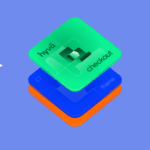Editor
An editor is used to create and edit digital data with the help of a computer program. Editors are available for various fields of application. In addition to classic text editors, editors for photos, music, web pages and videos can also be found. In contrast to the former analog editing of data or paper documents, digital editors offer numerous advantages. Data entered remains in volatile memory until it is manually saved by the user. In many editors, an undo function allows any operation to be undone without causing damage or restriction to the other data previously entered. If a piece of information is deleted, which makes other entered data meaningless, the user is made aware of the existing problem in numerous editors, or the editor deletes the connected links that have become meaningless due to the deletion of individual fragments on its own.
The history of editors
After data had been stored on punched cards for decades, the technology of data processing and storage was constantly developing. Starting in the 1960s, electromagnetic punch card punchers were programmable and large data centers used punch cards until the 1980s. However, as technology advanced, demands increased and the desire arose for programmable computers that could be easily populated with data. As a result, the first editors came onto the market, whose mode of operation resembled old typewriters. The possibility to change individual lines afterwards already represented a considerable progress compared with the typewriter technology and until today the simple, line-based editors are to be found with Windows and Unix as minimum standard.
Advanced editors
Advanced editors, which contain functions that make programming efficient and convenient, are particularly time-saving for the user. The emphasis is on fast editing of content, while dispensing with superfluous special functions such as layout and format. If the user does want specific formatting, there are special solutions for this within word processors. The editor used by Windows as a standard primarily generates txt files, with which texts can be edited and created on a small scale. Windows and Unix also provide various specialized and more powerful editors to meet specific user requirements. Many editors have syntax highlighting, where desired terms or word sequences are highlighted in color. There are also editors that automatically suggest meaningful endings for words that have been started.
HTML editors
HTML editors can be used to create websites in HTML format. Here, the user can usually choose whether to work directly in the source code or to make the changes in the created, visually converted file. In most HTML editors it is possible to switch between both views at any time. Some editors also know other script languages such as PHP.










